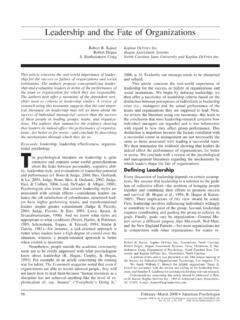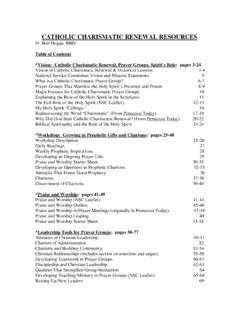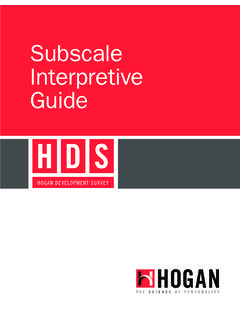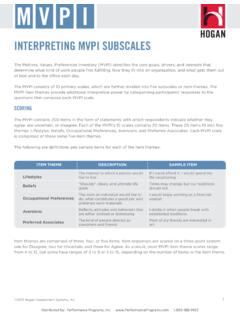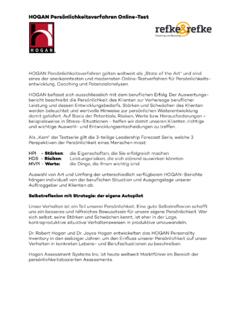Transcription of LWDLIB02-#4678986-v1-Briefing Note - Amending pension ...
1 Amending pension scheme benefits by extrinsic contract Updated September 2013. HIGHLIGHTS. In 2009 the High Court gave judgment in relation to the IMG pension Plan, in a case concerning amendments intended to change defined benefit (DB) benefits to defined contribution (DC) benefits for both past and future service. The judgment is important because: The scheme had a restrictive amendment power which the court held could not be removed by a subsequent amendment. It followed the decision in Re Courage Group's pension Schemes (see box below) and held that the restriction in the amendment power protected final salary linkage, despite argument that Courage had been wrongly decided. The Court decided that contracts outside the scheme could not be used to get around the restriction in the amendment power.
2 In doing so, it limited the circumstances in which such extrinsic contracts can be relied on important as extrinsic contracts have become an increasingly popular device to effect benefit changes (following South West Trains see box below). This part of the decision was followed by the High Court in BBC v Bradbury in 2012, which confirmed that extrinsic contracts can still be used provided the agreement concerns matters which fall outside the trust deed and rules. FACTS power could not itself have been used to remove the restriction contained in it. The IMG pension Plan was established by deed in 1977. The amendment power in the 1977 deed contained a The restriction in the 1977 amendment power should be restriction that: construed in line with the similar restriction in the Courage case (see box below).
3 In relation to IMG, the restriction "no amendment shall have the effect of reducing the value of benefits secured by contributions already made" did not prevent the conversion of final salary benefits to money purchase benefits but it meant that the relevant In 1981, IMG adopted rules for the scheme which contained money purchase benefits were subject to a final salary an amendment power allowing the Principal Employer and underpin. To avoid reducing the value of the benefits, the Trustee to amend the trust deed and rules provided that the underpin had to be calculated by reference to the the alteration did not prejudice Revenue approval that is, member's service to the date of the 1992 amendment and without the fetter contained in the 1977 amendment power. the future final salary of the member when he or she left In 1992 a deed was executed which purported to convert the pensionable service in other words, a final salary link Plan from a final salary scheme to a money purchase applied.
4 Scheme in respect of both future and past benefits. Following An argument that the deed effecting the 1992 conversion the appointment of an independent trustee, HR Trustees could have retrospective effect should be rejected (the Limited, questions as to the effectiveness of the conversion power of amendment was silent on the question of were raised and the Court was asked to resolve these issues. retrospective amendments), because to allow this would hogan Lovells acted for the independent trustee of the be to re-write history, which was not permissible. scheme. The trustee was appointed after the disputed amendments took place and was neutral as to the outcome of the proceedings. THE COURAGE CASE. POWERS OF AMENDMENT. Re Courage Group's pension Schemes, decided in 1986, The Court was asked to consider several issues in relation to concerned a scheme whose amendment power was subject the amendment powers.
5 It held that: to a restriction that: The 1977 amendment power (containing the fetter by "no such alteration shall vary or effect any benefits reference to the value of benefits) applied at the time of already secured by past contributions in respect of any member without his consent in writing". the 1992 conversion, and not the power in the 1981 rules (which had no such restriction). The 1977 amendment The Court was asked to consider the effect of this restriction and held that, in the absence of express definition, there was hogan Lovells Pensions Briefing 2. pension , which the trustees would have had to look outside no reason to exclude from the protected benefits any benefits the rules for anyway. the member would be prospectively entitled to in respect of future service put more simply, benefits accrued up to the IMPLIED DUTIES.
6 Date of the amendment had to be protected by reference to Mr Justice Warren in Bradbury went on to say that the the member's final pensionable salary on leaving the employer ought not to be able to rely on a contract agreeing scheme. the cap on pensionable salary with a member if the consent given had been undermined by a lack of real choice as to EXTRINSIC CONTRACTS whether or not to accept the changes, since this might give rise to a breach of the employer's implied duty of trust and The employers in IMG tried to argue that, by virtue of the confidence or good faith. members having signed application forms to join the new money purchase arrangement, they were contractually bound The Court in Bradbury was unable to consider the implied from claiming anything other than money purchase benefits, duties issue as the case was an appeal from a decision of the relying on the principle in South West Trains v Wightman Pensions Ombudsman and the issue had not been raised (see box below).
7 Before the Pensions Ombudsman; nor had the employer had the opportunity to adduce evidence. However, the member On the facts of the case the Court found there had been no was not precluded from pursuing a separate claim for breach contract made by the employer and members, but that in any of implied duties. event the principle in South West Trains could not apply ANTI-ALIENATION PROVISIONS AND SETTLEMENT. where the contract would override contrary provisions in the AGREEMENTS WITH MEMBERS. trust deed itself unless the members had consented to that. The Judge made it clear that such consent would have to be Section 91 of the Pensions Act 1995 provides that (with fully informed consent and that members would have to have certain exceptions) any agreement to surrender a member's a real choice as to whether to consent.
8 pension entitlements or rights to a future pension is unenforceable. SOUTH WEST TRAINS V WIGHTMAN. In relation to the IMG Plan, in some cases the employer and South West Trains, decided in 1998, concerned amendments members concerned had entered into agreements with the to train drivers' pension benefits agreed under collective purported effect of limiting those members' pension bargaining procedures. The pension benefits under the entitlements to money purchase benefits. agreement did not accord with the benefits due under the The High Court in the IMG case decided that these rules of the scheme. The Court held that there was an settlement agreements were rendered unenforceable by implied term under the agreement that the drivers would not section 91, even though there was a genuine dispute as to claim pensions from the scheme at a higher level than that the members' entitlement.
9 However, this issue went to the agreed in the collective bargaining procedure. It followed that Court of Appeal, who confirmed that, in line with public policy the trustee of the pension scheme could and should execute in favour of settling disputes, section 91 is not a bar to an Amending deed to give effect to the contractually-agreed compromising disputes over pension rights. Section 91 is changes. limited in scope to "rights and entitlements" to future benefits and does not extend to disputes over whether rights exist. THE BRADBURY CASE The High Court in Bradbury agreed with the Court of Appeal's conclusion on the section 91 point and held that an The issue of extrinsic contracts was considered in the case of agreement between the employer and a member to restrict Bradbury v BBC in 2012.
10 An active member had been increases in pensionable pay was not contrary to section 91. offered a salary increase on the basis that the increase in his pensionable pay for the purposes of his final salary pension ONGOING EFFECT OF THE IMG CASE. would be limited to one per cent per year. The alternative The IMG case offers clear guidance on the important option offered to him was to leave the defined benefit scheme question of whether amendment powers can be amended and join a career average section for future service. One of and when amendments can have retrospective effect (in the the employer's arguments was that the claimant's individual absence of express provision). It also affirms the decision in agreement to the cap on pensionable pay was binding as an Courage, which has been the subject of some criticism, and extrinsic contract.




